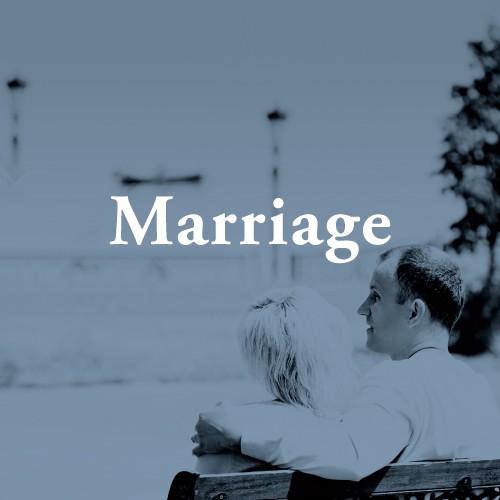
Marriage as Completion: Gender Roles (Part 1)
Tim Keller | September 29, 1991
Overview
Depending on the culture it’s sitting in, Christianity can either be considered radically liberal or horribly conservative. But Christianity isn’t to the left or to the right. In fact, if it’s true that Christianity doesn’t arise from the human spectrum of thought, but that it comes from above, then it’s natural that it doesn’t fit any particular ideology—and that every ideology is going to be suspicious of it.
In a series on marriage, we come now to the question of whether there’s any differentiation between the roles and obligations of a husband and wife in marriage. And the basic thesis in Ephesians 5 is that being male and being female are overlapping but distinguishable ways of being human.
I’d like to show that Ephesians 5 teaches us 3 things about gender roles: 1) there are roles, 2) why there are roles, and 3) what those roles are.
Outline
Understanding Marriage Roles in Ephesians 5:22–33
Marriage and the roles of husbands and wives can be a tricky topic. It’s crucial to recognize that the Christian perspective on this is both challenging and traditional, questioning the idea that the government or an individual has the final say. The aim is to grasp the distinctive yet interconnected ways men and women are humans, including their unique roles, duties, talents, and callings.
1. The
Men and women have unique roles in marriage. Wives are urged to respect their husbands, and husbands are told to love their wives. These roles aren’t tied to specific jobs or cliches, but they show the general differences between men and women, like men’s need for independence and women’s need for connection. The Bible’s timeless wisdom shows that these subtle yet significant differences apply in all situations, going beyond the idea of a conventional family.
2. The
When we look at the differences between husbands and wives, we see that they come from the nature of creation. The Greek word for “head” means both “source” and “influence.” So, when Paul says wives should submit to their husbands, he’s referring to Adam being the source of Eve. The analogy of the head and body further highlights this relationship, emphasizing the importance of understanding the original creation setup to fully grasp marriage.
3. The
Marriage goes beyond friendship as it embodies the mystery of two very different people becoming one. The unique challenge of understanding each other in marriage can be tough but it helps partners to discover their true selves and find fulfillment in each other. While the biblical roles of husband and wife involve submission, it’s really about equality and mutual growth. If there’s a disagreement, the husband’s authority is used as a deciding factor, but always with the well-being of both parties in mind.


